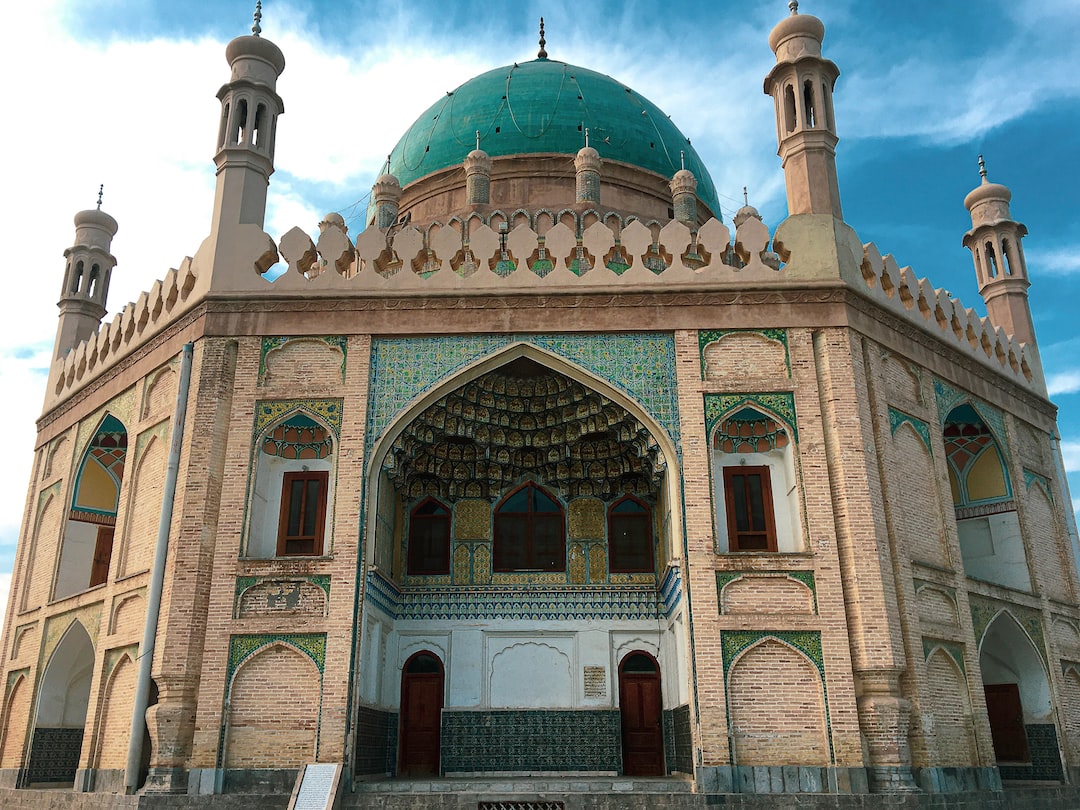Are you looking to make your wedding a unique and special experience? Look no further than afghanistan wedding traditions. These customs have been passed down through generations of Afghans, creating an atmosphere of joy and celebration for the bride, groom, and their families. From pre-wedding rituals to post-wedding superstitions, these ancient Afghan practices are sure to add flavor to any ceremony. Learn more about some of these traditional ceremonies below so that you can bring a piece of Afghanistan into your own big day.
Afghanistan Wedding Traditions
Pre-Wedding Traditions
Engagement Ceremony:
In Afghanistan, an engagement ceremony is held to formally announce the couple’s intent to marry. During this event, the bride and groom exchange rings as a symbol of their commitment. The parents of both parties are also present at the ceremony and may give gifts or money to each other in celebration.
Bride Price Negotiation:
Before a wedding can take place, the bride price must be negotiated between the families of the bride and groom. This process involves discussing how much money or property will be exchanged for the marriage contract. It is customary for both sides to negotiate until they reach an agreement that is satisfactory for all involved parties.
Once a bride price has been agreed upon, it is time to prepare a dowry for the bride-to-be. This includes items such as jewelry, clothing, furniture, household appliances and other items that she will need when she moves into her new home with her husband after marriage. The dowry usually reflects how wealthy or well off both families are so it can vary greatly from one family to another depending on their financial situation.
In Afghanistan, the pre-wedding traditions are full of intricate customs and rituals that bring families together to celebrate the union of two people. As these festivities come to a close, it’s time for the wedding day celebrations to begin.
Wedding Day Traditions
The wedding day is a special occasion for both the bride and groom, as well as their families. There are several traditions that must be observed in order to make the marriage valid.
Procession of the Groom and His Entourage:
On the morning of the wedding, there is usually a procession of the groom and his entourage from his home to where he will meet his bride. This procession often includes music, dancing, singing, and other festivities. The groom may also be accompanied by family members or friends who will help him get ready for his big day.
Bride’s Arrival at the Wedding Venue:
Once they arrive at their destination, it’s time for the bride’s arrival. She is typically accompanied by her parents or close relatives who have been part of her life since childhood. As she enters into her new home with her husband-to-be, everyone present cheers and celebrates this momentous occasion with joyous songs and dances.
The Nikah Ceremony is an integral part of any Muslim wedding. During this ritualistic exchange, the bride and groom declare their intention to enter into a lifelong union before God Almighty and witnesses present on behalf of both parties involved in this sacred contract known as “nikah” in Arabic language which translates to “marriage”. Subsequently, they sign an official document referred to as “aqd nikah” that serves as legal proof that they are now married according to Islamic law and tradition.
These three rituals form an integral part of any Muslim wedding celebration; each symbolizing different aspects related to marriage such as commitment towards each other through love and understanding, while also emphasizing the importance placed upon faithfulness within Islam itself. These traditions are truly unique yet beautiful experiences, worth cherishing forever.
From the procession of the groom to the nikah ceremony, wedding day traditions in Afghanistan are full of excitement and anticipation. Now let’s explore some of the post-wedding traditions that follow such a joyous occasion.
Post-Wedding Traditions
Once the wedding is over, there are a few post-wedding traditions that should be observed in order to ensure a successful marriage.
Celebrations and Feasting:
After the ceremony has concluded, it’s time for celebrations and feasting. This is usually done with close family members and friends of the couple who attended the wedding. It’s customary to serve traditional dishes from both sides of the families as well as special dishes prepared by relatives or caterers. The celebration may also include music, dancing, speeches from family members or friends, and other activities that honor the newly married couple.
Gift Exchange and Distribution of Sweets to Guests:
As part of tradition, gifts are exchanged between bride and groom’s families during this time as a symbol of their commitment to each other’s families. Additionally, sweets such as candy or chocolates are distributed among guests at this time in appreciation for attending the wedding festivities.
In some cultures, it is customary for brides to leave her parent’s home after she gets married – either immediately after or on another day set aside specifically for this purpose – accompanied by her husband along with his family members (or just him). This symbolic gesture marks the end of her life at her parent’s house and the beginning of a new one with her husband in his home (or wherever they decide).
Special Customs and Superstitions
Wearing Red Clothes on the Wedding Day for Good Luck: In Afghanistan, it is believed that wearing red clothes on the wedding day will bring good luck to the newlyweds. This tradition has been passed down from generation to generation and is still practiced today. The bride usually wears a traditional Afghan dress called a shalwar kameez which consists of loose trousers and an embroidered tunic in bright colors such as red or pink. The groom also typically wears a long shirt with pants in shades of red or maroon.
Breaking an Earthen Pot at the Doorstep of the Bride’s Home for Prosperity and Fertility Blessings: Another common superstition among Afghans is breaking an earthen pot at the doorstep of the bride’s home before she leaves for her new home with her husband. This ritual symbolizes fertility blessings and prosperity for both families involved in marriage union. It also serves as a reminder that life can be fragile but can be made stronger through love and commitment between two people who are united by marriage vows.
On their way back from their wedding ceremony, many couples stop by rivers or ponds where they feed milk to fish while making wishes about their future together as husband and wife. This custom is believed to bring good fortune upon them throughout their married life together, including wealth, health, happiness and harmony – all essential ingredients needed for any successful relationship.
Conclusion
Afghanistan wedding traditions are a beautiful mix of customs and superstitions that make for an unforgettable experience. From the pre-wedding rituals to the post-wedding celebrations, these afghanistan wedding traditions are sure to create lasting memories for you and your guests. Whether it’s singing traditional songs or performing special dances, there is something magical about celebrating with family and friends in this unique way. So go ahead, embrace these afghanistan wedding traditions and enjoy every moment of your special day.




